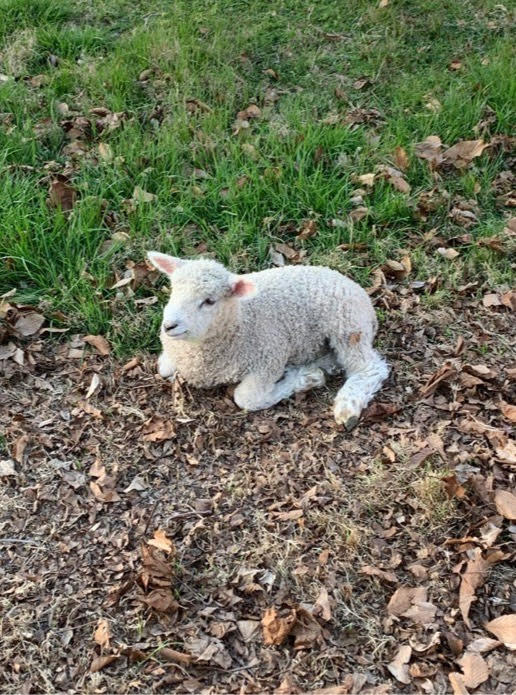This fall semester, the College of William and Mary Pre-Veterinary Club organized a program partnering with the Colonial Williamsburg Coach and Livestock community. The program is an initiative where students work hands-on with the animals and livestock directors in Colonial Williamsburg to help fulfill their documented animal experience hours.
Most veterinary schools in the United States require over 100 hours of experience working directly with live animals. Students usually acquire their hours by working with individual veterinary clinics and in hospital settings. However, the COVID-19 pandemic and the range of veterinary hospital restrictions has made it significantly more difficult for students to get their hours in indoor clinical settings.
The co-president of the College’s pre-Veterinary club, Elizabeth Garay ’23, said these circumstances were a reason the program began in the first place.
“We were all having a lot of issues getting hours in because COVID pretty much shut everything down,” Garay said. “Vets weren’t taking shadows and a lot of shelters weren’t letting people come in to volunteer. So, we were trying to brainstorm things that would be very beneficial to the club and one of the ideas that came up was the idea of volunteering with CW.”
Many pre-veterinary students tend to stack up their animal experience hours within the first couple years of college. However, for those without readily-available transportation from campus, it can be challenging. For freshmen and sophomores without cars on campus, the program has been convenient and accessible.
“Getting out to veterinary clinics and ASPCAs in the area is challenging because the bus system isn’t always the most reliable,” Garay said. “So we thought something super local within walking distance would be cool to look into.”
Giselle Boudreaux ’25 is a freshman reaping the benefits of this convenient initiative. Boudreaux entered college knowing she wanted to be on the pre-veterinary track and first began volunteering with the CW program through the pre-vet club in October 2021.
Even though Boudreaux sees herself in more of a clinical or research setting, each week of volunteering brings her new experiences and new perspectives into the world of animals.
“We will feed animals, clean out the chicken pens and animal stalls and milk the cows. I spent a lot of time with the sheep this past week,” Boudreaux said. “There was hoof training and we did a fecal sample of the sheep. Let’s just say I am a changed person after that experience.”
“We will feed animals, clean out the chicken pens and animal stalls and milk the cows,” Boudreaux said. “I spent a lot of time with the sheep this past week. There was hoof training and we did a fecal sample of the sheep. Let’s just say I am a changed person after that experience.”
According to Garay, the program has had a lot of engagement for the amount of students in the club so far.
“We usually have about 2-3 people from the club who go every week, depending on how many volunteers they want for the week,” Garay said. “We have about 6 or 7 volunteers who go regularly. We are a small club, so it is a pretty good amount of people to be involved since we just started.”
On the Colonial Williamsburg side, the Coach and Livestock team has been very appreciative of the help from the College’s students. Rachel Underdown is one of the main trainers for Coach and Livestock who has worked directly with the pre-veterinary student volunteers.
Underdown spoke on the positive attitude of the students in a written email.
“Several weeks ago, I actually suffered a concussion at work, so I was restricted to light duty for quite awhile, unable to bend over or lift hardly anything,” Underdown said. “During that time, the Pre-Vet Club members who came greatly aided my coworkers in the stables, particularly with the frequent task of cleaning stalls. One member of the Club even organized all of our winter blankets, pairing each horse by name with both a light and heavyweight blanket.”
The program integrates the broader Williamsburg community with the College. Often seen as a resource for history majors and academics of humanities departments, Colonial Williamsburg can be more than just an exclusively historical cultural hotspot. The pre-veterinary club is pioneering an avenue for STEM majors to get involved in CW. Both the students and CW staff have been very appreciative of this new opportunity and exposure.
“It’s a fantastic experience because usually if you want any sort of position like this it’s more competitive than you would expect it to be,” Boudreaux said. “So it’s really great to have people who genuinely want to teach you.”

